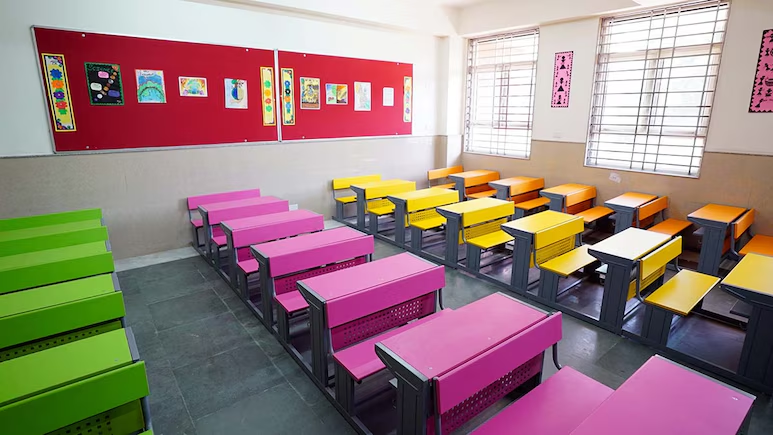
While the COVID-19 pandemic disrupted education across the board, its biggest impact was felt by students writing entrance or board exams in 2020. On March 24, Prime Minister Narendra Modi announced a nationwide lockdown, first for 21 days. However, it continued for three more phases and schools, colleges remained closed until October. The Engineering admission test Joint Entrance Examination Main (JEE Main) and the National Eligibility Cum Entrance Test (NEET) for medicine were postponed twice.
State boards that were able to hold exams before the lockdown were late in declaring results. The rest either cancelled them or waited months to conduct them. Disruption to teaching compelled several state boards, including the Central Board of Secondary Education (CBSE) to reduce their syllabi.
Here are five points on how India held exams in 2020
JEE Main, NEET 2020 Was different
Originally scheduled for April, the second round of JEE Main 2020 was held in September after the Supreme Court cleared the way for it despite widespread protest. Similarly, the medical entrance exam, NEET, after postponements, was finally held on September 13 with states taking measures to facilitate the process.
Ministry of Health and Family Welfare had released new guidelines for conducting examinations amid COVID-19. Candidates also had to fill a self-declaration form, which had to be signed by either parent or guardian. Only those candidates who had filed the self-declaration form were being allowed into the exam centres.
'Carry forward' To 2021
The Institute of Chartered Accountants of India, or ICAI, cancelled May 2020 exams and merged it with the November attempt. The institute has introduced the opt-out facility allowing candidates affected by COVID-19 to “carry forward their candidature” to the next exam cycle. The next exam is in late January or early February 2021.
Law, Management And State CETs
Delhi High Court in September dismissed a plea for conducting the Common Law Admission Test (CLAT 2020) online. The exam was held on September 28 at exam centres.
The Management entrance exam -- Common Admission Test (CAT 2020) -- took place on November 29 and in three shifts. A new pattern was introduced this year where there were 76 questions instead of 100. However, both the number of shifts and question pattern might change if the COVID-19 threat abates by the next exam.
Kerala was one of the first states to conduct a major entrance exam during the lockdown. It conducted its Engineering, Agriculture and Medical (KEAM) entrance exam, with over one lakh registered candidates, on July 16. The Karnataka High Court in July allowed the Karnataka Common Entrance Test or KCET 2020. Other states, including Andhra Pradesh, Telangana, Maharashtra, and Gujarat held competitive exams following government guidelines. Many of these states have reduced their Class 12 syllabi which may impact the entrance test question papers as well.
State Boards, CBSE Reduce Syllabus
Because the pandemic put a halt to classroom teaching, several states, including Maharashtra, West Bengal, Tamil Nadu and others, decided to reduce their syllabi for the 2021 board exams. The CBSE has reduced its exam syllabus by 30 per cent.
Conducting exams and declaring results were hard enough in 2020. Bihar School Education Board (BSEB) had conducted exams before the lockdown and was the first to announce Class 12 and Class 10 results.
Evaluation was delayed for Uttar Pradesh Madhyamik Shiksha Parishad (UP Board) exams which were held in March. The results for over 50 lakh students were declared in July. State boards in Punjab, Madhya Pradesh, Chhattisgarh adopted alternative methods of evaluation for the remaining papers, Rajasthan, Andhra Pradesh, Kerala and others held their board exams after the COVID-19 situation improved in their states and the restrictions relaxed.
The CBSE could not complete the board exams before lockdown and adopted an alternative assessment scheme, using an average-mark formula for papers that were cancelled.
(With inputs from PTI)
